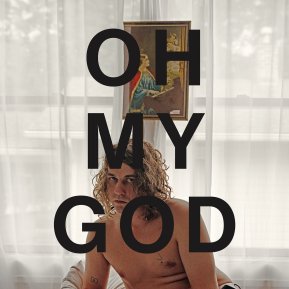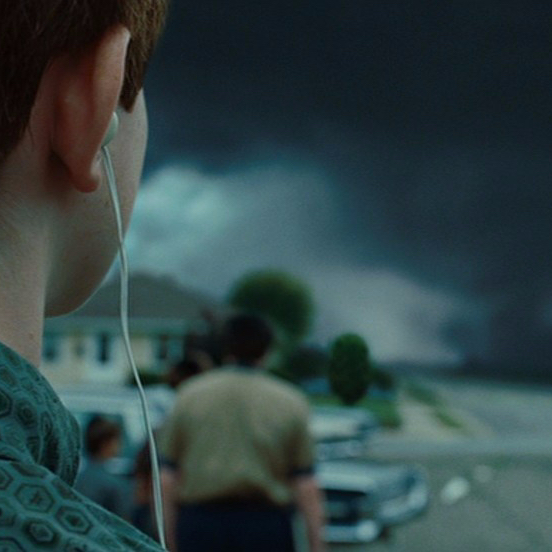
When Bob Dylan released Slow Train Coming in August 1979, it was widely considered a shocking turn for the singer-songwriter and ’60s icon, whose famous proclamation that the “times they are a-changin'” was understood by many to include the overturning of traditional institutions such as Christianity. There was only one problem: Dylan had been drawing on the Judeo-Christian tradition, particularly the Bible, since his eponymous first album in 1962. Hence, while people assumed that Dylan’s so-called “gospel period” represented a rupture from his prior work, it was actually an expansion of it.
Something similar might be said of Kevin Morby — a contemporary singer-songwriter who has drawn comparisons to past masters such as Dylan and Leonard Cohen. Morby’s latest release is entitled Oh My God, and the title is indeed meant to be taken literally, both as an expression of Morby’s interest in religion and as a phrase that is uttered (flippantly, passionately, sarcastically, etc.) innumerable times every day. In a candid recent interview, Morby admits that he has had a longstanding fascination with eschatological themes, from death and judgment to heaven and hell. Moreover, he continually finds himself, sometimes almost unconsciously, invoking God and asking for forgiveness: “At a certain point of my in my late teens, I realized that I still went to [such a] prayer all the time. I gained agency and I knew that what I believed in and what I stood for. Still, that prayer was embedded in me.”
Morby’s debut as a solo artist, Harlem River (2013), touches on just this theme. In “The Dead They Don’t Come Back,” the album’s final track, Morby sings quietly over a combination of acoustic and steel guitar: “Oh I am on a ride / Measure the distance in time / And as sure as I was born / I will die. / And on my way back home / Stopped at your tombstone / Said a prayer for you / I was tired and alone / Said Lord I miss my friend / Who’s underneath my feet / May her soul, oh may her soul, oh may her soul rest in peace.” The following year Morby returned with Still Life, and it too abounds with religious concerns. Still Life‘s penultimate track is plainly called “Amen,” and it features alternating tempos, an instrumental coda, plus a lengthy prose poem or, better yet, a prayer spoken by Morby:
In the earliest of mornings
The prayers would come and make themselves my way
Gently like a leaf on top of water harming no one
And that morning when I opened my eyes
It said accepted and then it melted away
When I opened them again it said expected
Dear God reach down your hand and lift me up
And death she said or what it seemed to me was one who got caught in God’s riptide
And quickly without realizing you had been pulled out to sea
You looked up and a beach begins to grow faint
As you sink further into its abyss
And soon there’s no one around you
And all that surrounds you is blue
Dear God reach down your hand and lift me up
Amen
One could easily cite other Morby tracks that offer similar lyrical passages or raise related existential questions, from “I Have Been to the Mountain” on Singing Saw (2016) to “Pearly Gates” on City Music (2017). But perhaps no song is more relevant here than “Beautiful Strangers,” a single that Morby recorded for charity and whose lyrics are repeated, refrain-like, throughout Oh My God. Its invocations of “release me” and “Baby Jesus,” backed by a gospel chorus, have rightly been likened to “born-again Dylan.”
After reading the above, one might almost think Morby belongs in the contemporary Christian genre, but Morby has rejected this association, not only because he is reluctant to affiliate with a particular religious body, but also because he sees himself as a questioner rather than as a proselytizer. Put in more philosophical terms, Morby views religion-cum-spirituality as phenomena essential to human existence, insofar as they address questions that outstrip today’s dominant technocratic paradigm. Religion, like poetry, is the realm of mystery, where the ineffable is given symbolic and even sacramental expression. In another interview, Morby recalls a recent trip to Portugal:
I was buying this really heavy painting that was done on a bunch of tiles. It’s of [Our Lady of Fátima]. When I was buying it, the woman selling it to me was really interested like, ‘Why would an American want this? You don’t seem like a religious Portuguese person. And I was telling her I just thought it was a nice painting and it interested me. And she was telling me the backstory. These [three children shepherds], the [Virgin Mary] came to them and then they went and told everyone they had seen [her] and then they became prophets. And it’s just funny, it’s almost like in her explaining it to me, it’s like, ‘Why wouldn’t I be interested in this?’
Thus wonder, rather than certainty, is Morby’s métier, and it emerges throughout Oh My God. Sometimes, as on “Seven Devils,” it has to do with the inevitability of temptation: “Chimes in my heart were singing / As the trees in my yard were shaking / Singing, ‘You’ve been warned / And here comes the storm / If you want to survive / You better take that ride.’ / With the seven devils on my train line / On my train line.” By the album’s conclusion, however, the storm of demonic alienation has yielded to the calm of divine beauty. As Morby sings over a soulful piano on “Oh Behold,” Oh My God‘s final track: “O behold the hole in my soul / Cannot be filled and it cannot be sewn up / And o behold the hole in my veil / Lights coming through the trees / I’m down on my knees.”
There is continuity, then, in Morby’s art. However expressed, his question has been and likely will remain similar to that of Kierkegaard’s pseudonym Johannes Climacus: “How can an eternal happiness be found amidst history and time?” As Kierkegaard’s authorship repeatedly acknowledges, this is by no means a straightforward issue, and, over the centuries, it has called forth a host of answers. Indeed, what the secular media has often missed about Morby, as it did (and continues to do) with Dylan, is that asking this question does not make one “religious.” It simply makes one human.
